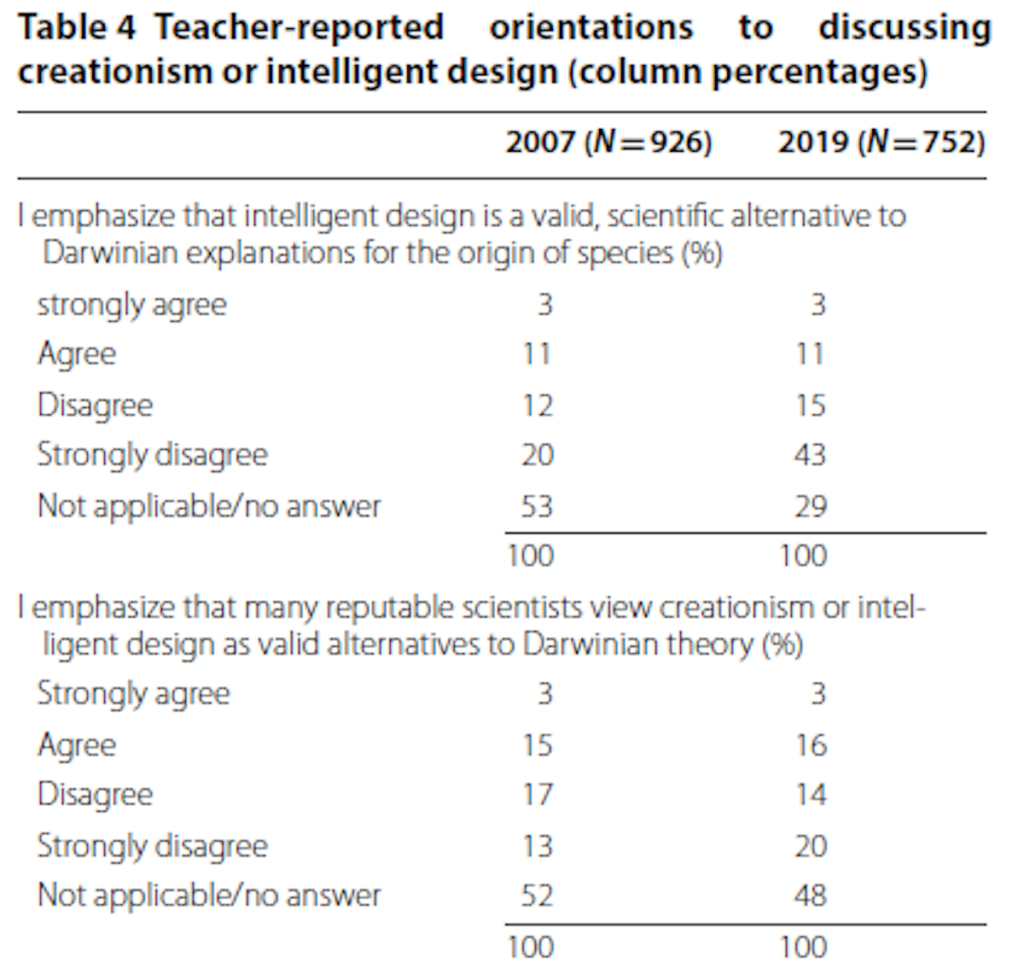 Education
Education
NCSE Underreports Teachers Who Support Intelligent Design


The National Center for Science Education (NCSE) is a non-profit group that has one primary mission: to censor minority scientific viewpoints on hot-button issues like evolution (and more recently, climate change). One might think that such a mission would render them NGO non grata within the scientific community, which is supposed to oppose dogmatism and welcome scientific questioning. Unfortunately, the opposite is the case.
In the 1980s, the NCSE was conceived and birthed out of a direct alliance between some of the world’s most powerful science and teaching organizations: the U.S. National Academy of Sciences, the National Association of Biology Teachers, and the American Association for the Advancement of Science. For decades, NCSE staff have had seemingly open doors to publish opinion articles — “calls to action” for scientists to rise up as activists against any dissent they label “creationism” — in virtually any kind of scientific journal and at any time they wish. Those who answer the call are lauded as heroes.
No Surprise
Thus, it was no surprise that last month the NCSE’s executive director Ann Reid published an article in the world’s top scientific journal, Nature, reporting on apparent successes they have had in preventing teachers from teaching “creationism” in public schools. This was accompanied by the customary calls for scientists to “help by letting their societies and local leaders know that science education is important to them, and that they are willing to volunteer.”
It’s important to appreciate that when they say “creationism,” that essentially entails any form of scientific dissent from the view that the neo-Darwinian paradigm of evolution is fully correct with no scientific flaws. That may sound too dogmatic to believe, but consider that Reid’s predecessor at the NCSE, Eugenie Scott, once famously declared, “There are no weaknesses in the theory of evolution.”
Admit No Weaknesses
Sarah Chaffee has already explained that Reid’s article left out some important details about science policies around the United States that support critical analysis of evolution. But there’s more important evidence that Reid omitted.
Reid states in her first paragraph that the proportion of teachers who teach “creationism” dropped by 14 percent from 2007 to 2019:
Results published on 10 June show that the proportion of US secondary-school biology teachers who present creationism as a scientifically valid alternative to evolution fell from 32% in 2007 to 18% in 2019 (E. Plutzer et al. Evo. Edu. Outreach 13, 14; 2020).
Bearing in mind that their methodology typically conflates “intelligent design” and “creationism,” we looked up the Plutzer et al. (2020) referenced article in Evolution Education and Outreach, of which Reid is a coauthor. After digging into their dataset, we find a somewhat different story.
Table 4 of the paper compares the results of the 2007 and 2019 surveys. It shows the proportion of teachers that either “agree” or “strongly agree” with the following statement: “I emphasize that intelligent design is a valid, scientific alternative to Darwinian explanations for the origin of species.” As seen in the first question below, the percentage of teachers that affirm this statement is actually precisely unchanged from between 2007 and 2019 — 14 percent vs. 14 percent:

And look at the second question — teachers who apparently “agree” or “strongly agree” with the following statement: “I emphasize that many reputable scientists view creationism or intelligent design as valid alternatives to Darwinian theory.” In 2007, 18 percent of teachers agreed with this statement, but in 2019 this percentage went up to 19 percent. Of course, a 1 percent increase is not statistically significant, but this is very different from the huge decline in teachers who teach “creationism” that Reid touted in her Nature article.
“Mixed Messages”
Instead, in her Nature article Reid focuses on the percent of teachers who are “exclusively emphasizing creationism” and those who promote what she calls “mixed messages.” Unfortunately, “mixed messages” is an ambiguous category they construct but never clearly define in their paper. So it’s difficult to know how Reid supports her claims.
As Sarah Chaffee details, Discovery Institute does not support public schools pushing intelligent design into the curriculum and instead supports teaching the scientific strengths and weaknesses of Darwinian evolution. As we’ll explain soon their study doesn’t report how many teachers actually follow Discovery Institute’s recommended approach.
But the point here is that there are key metrics in the study’s dataset that show that overall teacher instruction about intelligent design has stayed roughly the same since 2007. Ignoring this evidence, Ann Reid’s Nature report paints a rosy picture for ID-opponents. She ignores the evidence, and instead cites an ambiguously defined statistic to claim a major drop.
Perhaps this should come as no surprise. What else would you expect from a group whose approach is to never admit weaknesses?
Photo credit: Felicia Buitenwerf via Unsplash.
